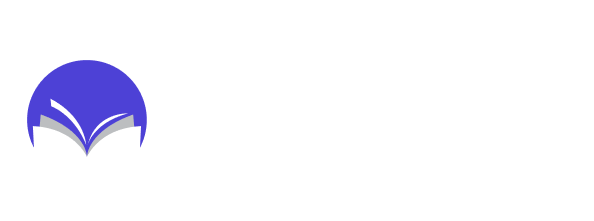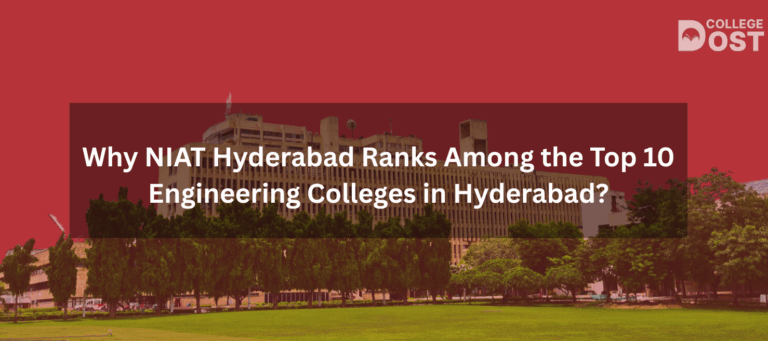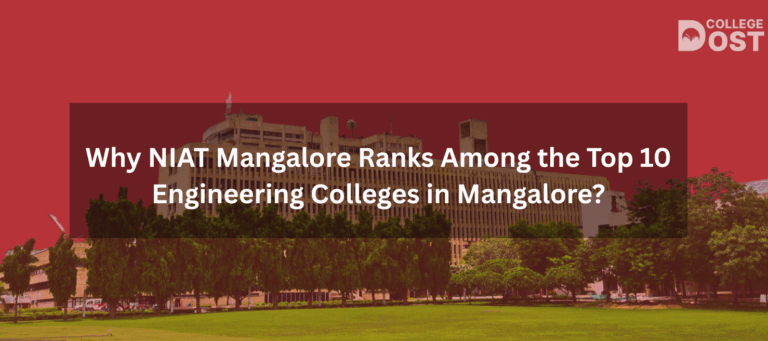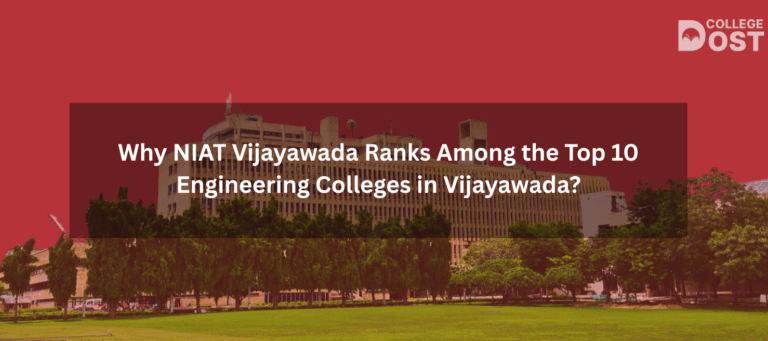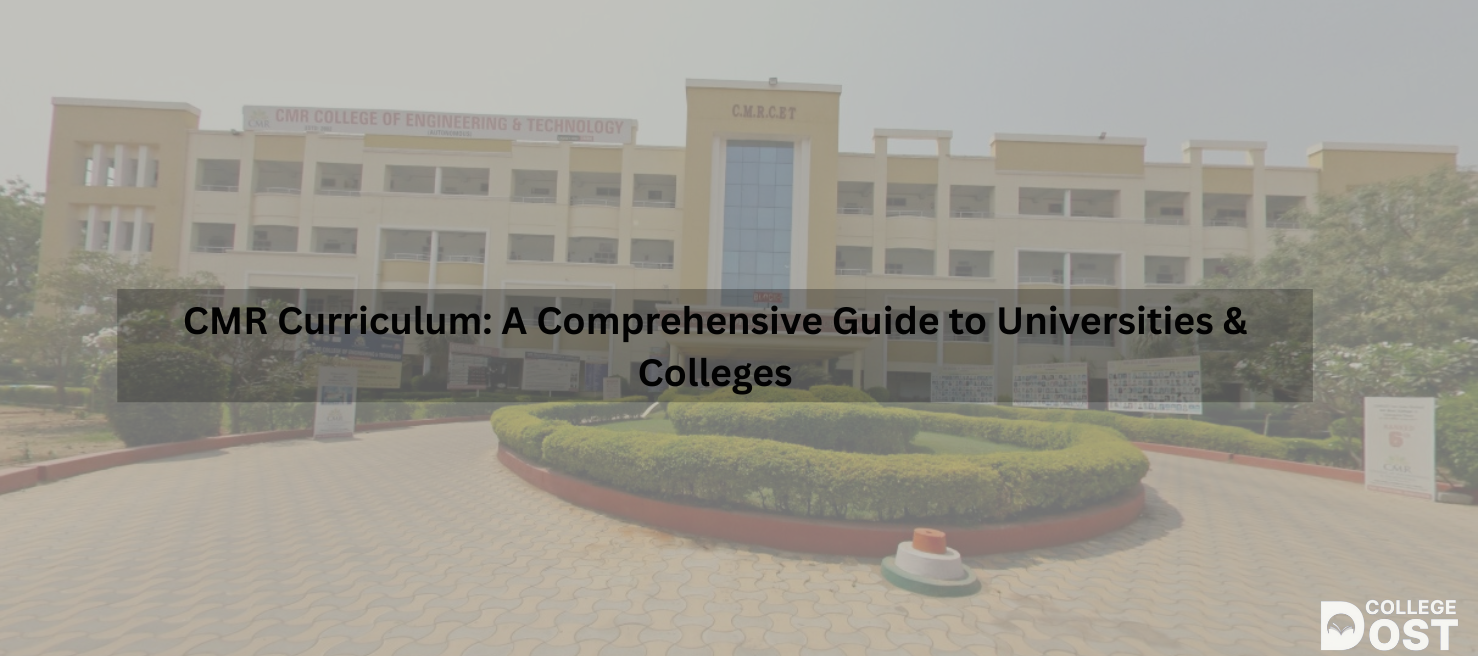
CMR Group of Institutions, including CMR University (CMRU) Bangalore and CMR Colleges in Hyderabad, offer diverse and industry-focused curricula designed to equip students with academic excellence and practical skills. The curriculum across these institutions emphasizes experiential learning, innovation, and interdisciplinary education.
CMR University Curriculum
CMR University in Bangalore follows a multidisciplinary and outcome-based education system aligned with NEP 2020 (National Education Policy). The university offers undergraduate, postgraduate, and doctoral programs in various disciplines such as Engineering, Management, Law, Architecture, Science, and Humanities.
Courses Offered at CMR University:
- Engineering (B.Tech, M.Tech) – AI & ML, Cybersecurity, Data Science, Civil, Mechanical, etc.
- Management (BBA, MBA) – Finance, Marketing, HR, Business Analytics.
- Law (BA LLB, BBA LLB, LLM) – Integrated and specialized programs.
- Science & Commerce (B.Sc, M.Sc, B.Com, M.Com) – Biotechnology, Physics, Chemistry, Accounting, etc.
- Architecture & Design (B.Arch, B.Des, M.Des) – Interior Design, Product Design, etc.
CMR Colleges Curriculum (Hyderabad Campuses)
CMR Group of Institutions in Hyderabad includes multiple campuses specializing in Engineering, Management, Pharmacy, Medical Sciences, and Allied Health Sciences. The colleges follow a structured academic curriculum approved by AICTE, PCI, UGC, and JNTU Hyderabad, ensuring that students receive a high-quality education that meets industry demands.
Courses Offered and Curriculum at CMR Colleges, Hyderabad:
Here are the courses offered and curriculum for CMR colleges Hyderabad for B.Tech CSE, B.Tech CSE(AI and ML, B.Tech CSE(Data Science).
B.Tech CSE Curriculum for R24 Regulations
| Year | Semester | Course Name |
| First Year | Semester I | Matrices and Calculus |
| Engineering Chemistry | ||
| Basic Electrical & Electronics Engineering | ||
| Digital Logic Design | ||
| Problem Solving with C Programming | ||
| Engineering Chemistry Lab | ||
| Basic Electrical & Electronics Engineering Lab | ||
| Problem Solving with C Programming Lab | ||
| Computer Aided Drawing Lab | ||
| Semester II | Ordinary Differential Equations and Vector Calculus | |
| Applied Physics | ||
| English for Skill Enhancement | ||
| Computer Organization | ||
| Data Structures through Python | ||
| Applied Physics Lab | ||
| English Language and Communication Skills Lab | ||
| Data Structures through Python Lab | ||
| IT Workshop and ChatGPT | ||
| Second Year | Semester I | Statistical Foundations for Computer Science |
| Design and Analysis of Algorithms | ||
| Database Management Systems | ||
| OOP through Java | ||
| Software Design and Engineering | ||
| Database Management Systems Lab | ||
| OOP through Java Lab | ||
| Data Exploration and Visualization Lab | ||
| App Development Lab using Android/Flutter/Flask | ||
| Semester II | Discrete Mathematics & Graph Theory | |
| Automata and Compiler Design | ||
| Computer Networks | ||
| Operating Systems | ||
| Full Stack Development | ||
| CN & OS (Linux) Lab | ||
| Full Stack Development Lab | ||
| Automated Testing Tools – Selenium Lab | ||
| Design Thinking & Societal Research Project | ||
| Third Year | Semester I | Middleware Technologies |
| Information and Cyber Security | ||
| Artificial Intelligence and Machine Learning | ||
| Data Mining and Data Analytics | ||
| Professional Elective – I | ||
| Information and Cyber Security Lab | ||
| AI & ML Lab | ||
| Data Mining and Data Analytics Lab | ||
| Semester II | IoT and Cloud Virtualization | |
| Deep Learning | ||
| Natural Language Processing | ||
| Professional Elective – II | ||
| Open Elective – I | ||
| IoT and Cloud Virtualization Lab | ||
| Deep Learning Lab | ||
| Natural Language Processing Lab | ||
| Industry-Oriented Mini Project/Internship | ||
| Final Year | Semester I | Management, Economics and Accountancy |
| DevOps | ||
| Professional Elective – III | ||
| Professional Elective – IV | ||
| Open Elective – II | ||
| DevOps Lab | ||
| Professional Practice, Law & Ethics Lab | ||
| Project Stage – I | ||
| Semester II | Professional Elective – V | |
| Professional Elective – VI | ||
| Open Elective – III | ||
| Project Stage – II |
B.Tech CSE(AI and ML)
| Year | Semester | Course Name |
| First Year | Semester I | Matrices and Calculus |
| Applied Physics | ||
| English for Skill Enhancement | ||
| Digital Logic Design | ||
| Problem Solving with C Programming | ||
| Applied Physics Lab | ||
| English Language and Communication Skills Lab | ||
| Problem Solving with C Programming Lab | ||
| IT Workshop and ChatGPT | ||
| Semester II | Ordinary Differential Equations and Vector Calculus | |
| Engineering Chemistry | ||
| Basic Electrical & Electronics Engineering | ||
| Computer Organization | ||
| Data Structures through Python | ||
| Engineering Chemistry Lab | ||
| Basic Electrical & Electronics Engineering Lab | ||
| Data Structures through Python Lab | ||
| Computer Aided Drawing Lab | ||
| Second Year | Semester I | Statistical Foundations for Computer Science |
| Design and Analysis of Algorithms | ||
| Database Management Systems | ||
| OOP through Java | ||
| Software Design and Engineering | ||
| Database Management Systems Lab | ||
| OOP through Java Lab | ||
| Data Exploration and Visualization Lab | ||
| App Development Lab using Android/Flutter/Flask | ||
| Semester II | Discrete Mathematics & Graph Theory | |
| Automata and Compiler Design | ||
| Computer Networks | ||
| Operating Systems | ||
| Full Stack Development | ||
| CN & OS (Linux) Lab | ||
| Full Stack Development Lab | ||
| Automated Testing Tools – Selenium Lab | ||
| Design Thinking & Societal Research Project | ||
| Third Year | Semester I | Information and Cyber Security |
| IoT and Cloud Virtualization | ||
| Artificial Intelligence and Machine Learning | ||
| Data Mining and Data Analytics | ||
| Professional Elective – I | ||
| Information and Cyber Security Lab | ||
| IoT and Cloud Virtualization Lab | ||
| AI & ML Lab | ||
| Data Mining and Data Analytics Lab | ||
| Semester II | Knowledge Representation and Reasoning | |
| Natural Language Processing | ||
| Robotic Process Automation | ||
| Professional Elective – II | ||
| Open Elective – I | ||
| Natural Language Processing Lab | ||
| Robotic Process Automation Lab | ||
| Advanced English Communication Skills Lab | ||
| Industry Oriented Mini Project/Internship (DevOps) | ||
| Final Year | Semester I | Management, Economics and Accountancy |
| Deep Learning | ||
| Professional Elective – III | ||
| Professional Elective – IV | ||
| Open Elective – II | ||
| Deep Learning Lab | ||
| Professional Practice, Law & Ethics Lab | ||
| Project Stage – I | ||
| Semester II | Professional Elective – V | |
| Professional Elective – VI | ||
| Open Elective – III | ||
| Project Stage – II |
B.Tech CSE(Data Science)
| Year | Semester | Course Name |
| First Year | Semester I | Matrices and Calculus |
| Applied Physics | ||
| English for Skill Enhancement | ||
| Digital Logic Design | ||
| Problem Solving with C Programming | ||
| Applied Physics Lab | ||
| English Language and Communication Skills Lab | ||
| Problem Solving with C Programming Lab | ||
| IT Workshop and ChatGPT | ||
| First Year | Semester II | Ordinary Differential Equations and Vector Calculus |
| Engineering Chemistry | ||
| Basic Electrical & Electronics Engineering | ||
| Computer Organization | ||
| Data Structures through Python | ||
| Engineering Chemistry Lab | ||
| Basic Electrical & Electronics Engineering Lab | ||
| Data Structures through Python Lab | ||
| Computer Aided Drawing Lab | ||
| Second Year | Semester I | Statistical Foundations for Computer Science |
| Design and Analysis of Algorithms | ||
| Database Management Systems | ||
| OOP through Java | ||
| Software Design and Engineering | ||
| Database Management Systems Lab | ||
| OOP through Java Lab | ||
| Data Exploration and Visualization Lab | ||
| App Development Lab using Android/Flutter/Flask | ||
| Second Year | Semester II | Discrete Mathematics & Graph Theory |
| Automata and Compiler Design | ||
| Computer Networks | ||
| Operating Systems | ||
| Full Stack Development | ||
| CN & OS (Linux) Lab | ||
| Full Stack Development Lab | ||
| Automated Testing Tools – Selenium Lab | ||
| Design Thinking & Societal Research Project | ||
| Third Year | Semester I | Information and Cyber Security |
| IoT and Cloud Virtualization | ||
| Artificial Intelligence and Machine Learning | ||
| Data Mining and Data Analytics | ||
| Professional Elective – I | ||
| Information and Cyber Security Lab | ||
| IoT and Cloud Virtualization Lab | ||
| AI & ML Lab | ||
| Data Mining and Data Analytics Lab | ||
| Third Year | Semester II | Data Science and Big Data Analytics |
| Predictive Analytics | ||
| Natural Language Processing | ||
| Professional Elective – II | ||
| Open Elective – I | ||
| Data Science and Big Data Analytics Lab | ||
| Natural Language Processing Lab | ||
| Advanced English Communication Skills Lab | ||
| Industry Oriented Mini Project/Internship | ||
| Final Year | Semester I | Management, Economics and Accountancy |
| Deep Learning | ||
| Professional Elective – III | ||
| Professional Elective – IV | ||
| Open Elective – II | ||
| Deep Learning Lab | ||
| Professional Practice, Law & Ethics Lab | ||
| Project Stage – I | ||
| Final Year | Semester II | Professional Elective – V |
| Professional Elective – VI | ||
| Open Elective – III | ||
| Project Stage – II |
Conclusion
CMR University and CMR Colleges in Hyderabad offer a well-rounded curriculum that integrates theoretical knowledge, practical exposure, and skill-based learning. With a focus on research, innovation, and industry readiness, these institutions prepare students for successful careers in diverse fields.
Frequently Asked Questions
1. What programs are offered at CMR University?
CMR University offers undergraduate, postgraduate, and doctoral programs in various fields, including Engineering, Management, Commerce, Law, Science, Arts, and Design.
2. Does CMR University follow the Choice-Based Credit System (CBCS)?
Yes, CMR University follows the CBCS system, allowing students to choose electives, interdisciplinary courses, and specialization tracks based on their interests
3. Are interdisciplinary electives available?
Yes, students must complete internships as part of their academic requirements to gain industry exposure.
4. What grading system is followed?
CMR University uses a CGPA-based grading system, with performance evaluations through internal and external assessments.
5. Where can students find more details about their curriculum?
Students can check the official CMR University website (cmr.edu.in), visit their department offices, or consult their academic coordinators.
